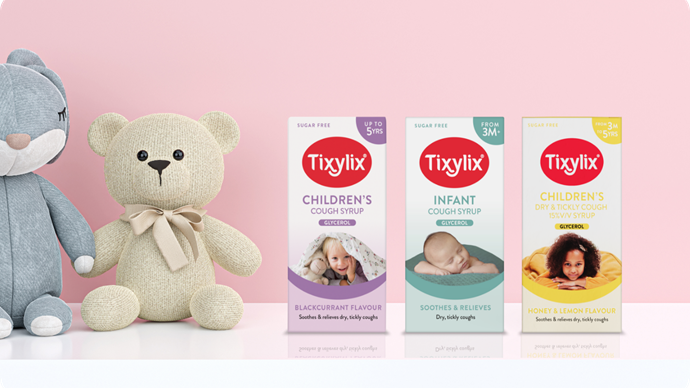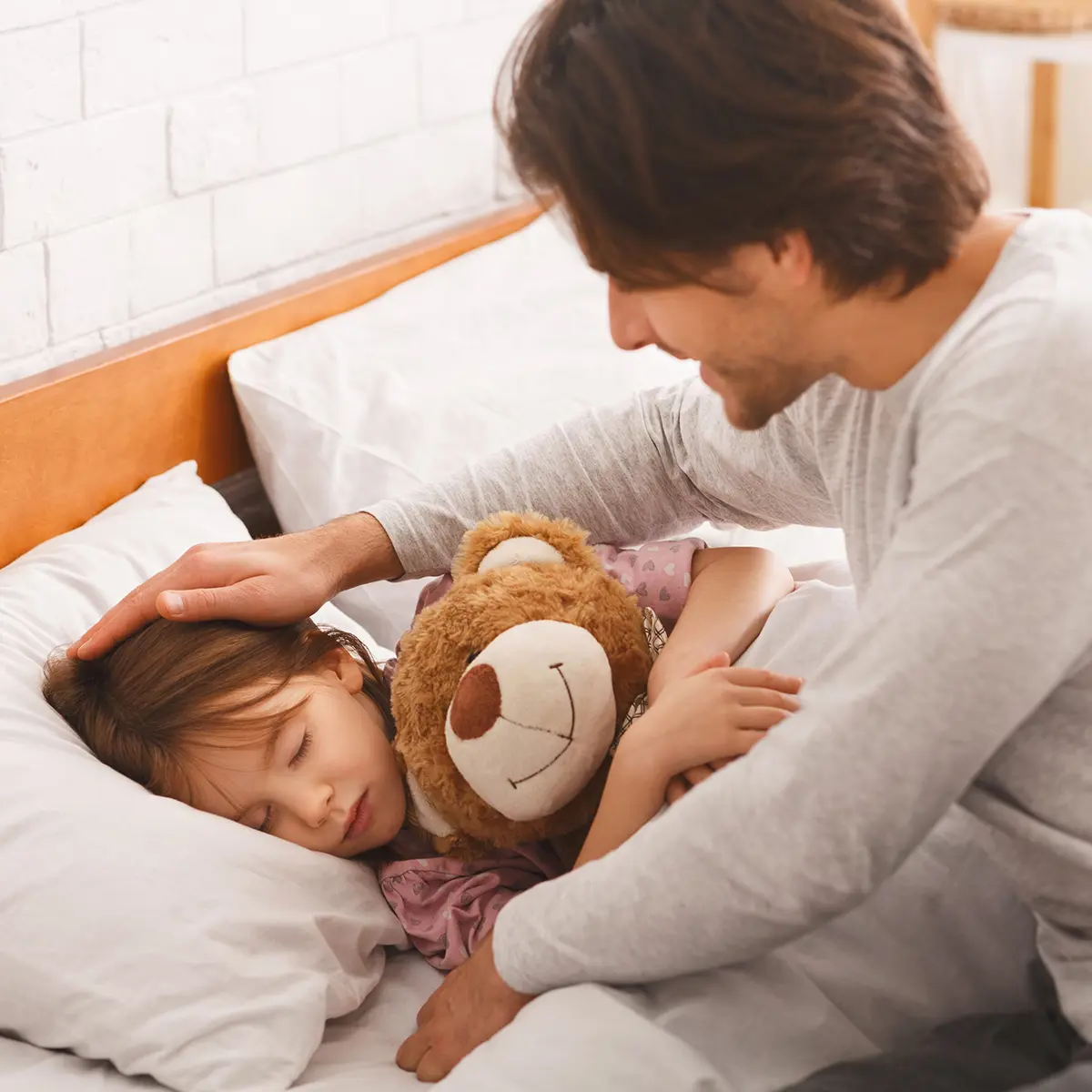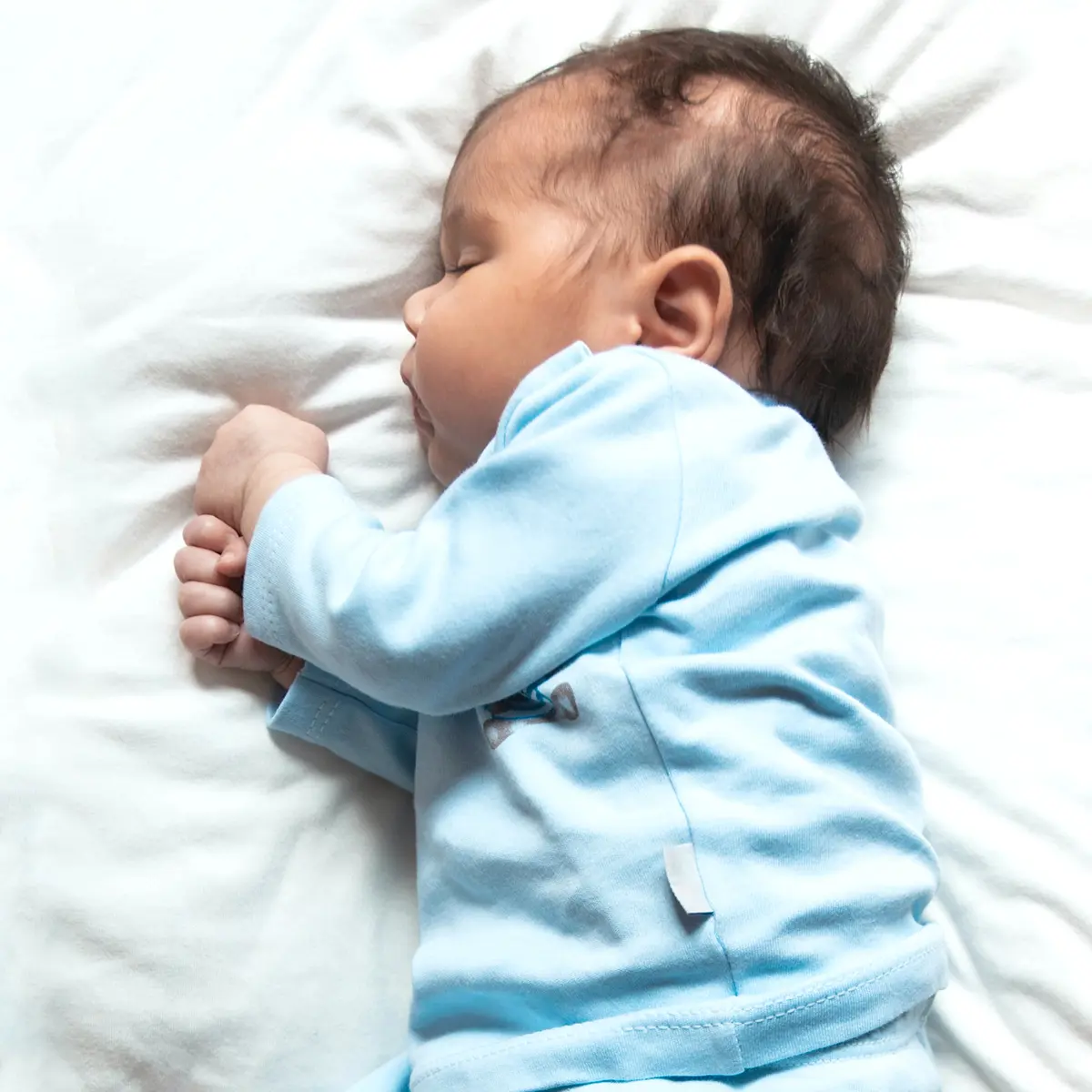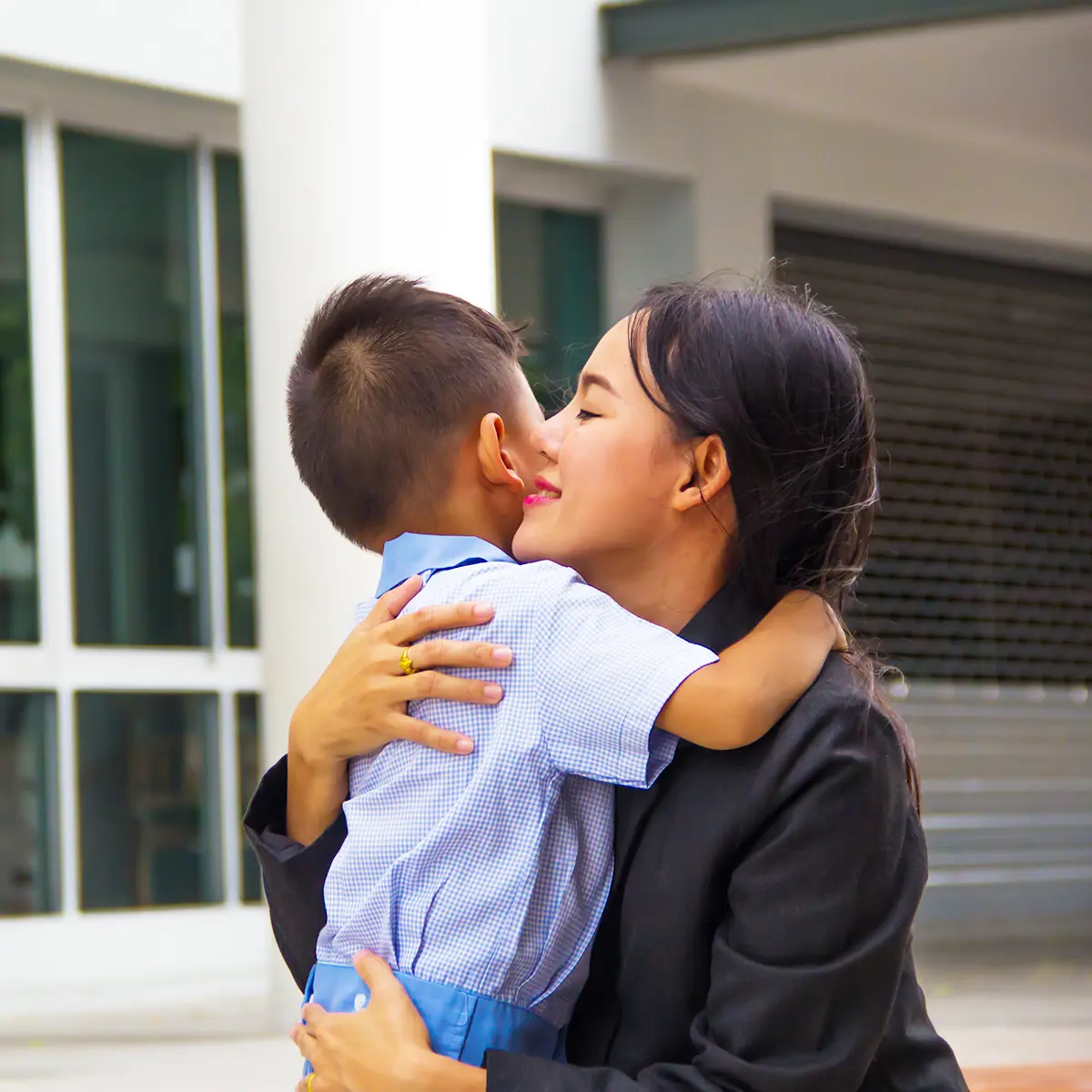HOW TO HANDLE YOUR CHILD’S FIRST SICK DAY
It’s tough seeing your child feeling poorly, and unfortunately there’s no magic wand you can wave to make them feel like themselves again, but there are a few ways you can make them feel a bit more comfortable.
If your child is ill off school, here’s how you can help soothe them.
Get plenty of rest
Rest is important to help your child feel better, but if they’d rather not stay in bed all day, set them up on the sofa with a blanket and pillows. It might be hard to convince wilful kids to lie down all day, so try keeping them engaged with low-energy activities like reading, board games and arts and crafts.
If they’re feeling sleepy, let them nap if they need to – maybe read them a story to help them drift off.
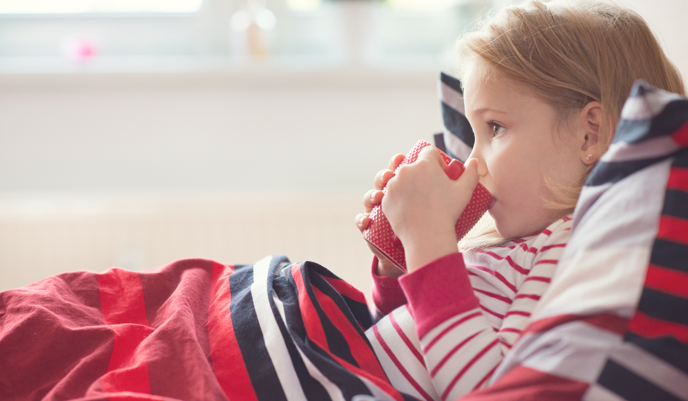
Give them plenty of fluids
Although it can be hard enough to make children drink enough water at the best of times, it’s particularly important for them to stay hydrated when they are ill. Encourage them to take small, regular sips of water or, if they think that water is too ‘boring’, try diluted fruit juice instead.
If they’re still refusing to drink, try offering it to them in a fun, creative way that they won’t be able to resist – maybe add a fun straw, or give it to them in a cup they’ve never used before! Ice lollies are also a good way to up your child’s fluid intake and can help temporarily soothe sore throats.
Don't force them to eat
You may have heard the saying ‘feed a cold, starve a fever’, but really, your child will decide whether or not they feel like eating. It’s normal for poorly kids to lose their appetite, so if they say they aren’t hungry during the first day of illness, don’t force them to eat anything if they don’t want to. After the first day, try to tempt them with their favourite foods, even if that means making pancakes with ice cream for dinner.
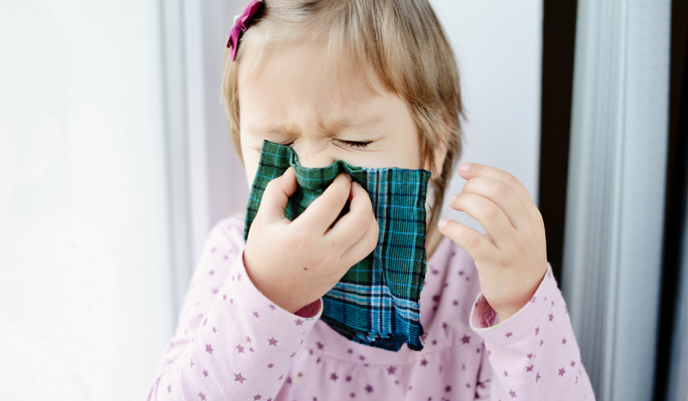
Be careful about hygiene
Germs can easily be passed through the home when you have an ill child, but there are ways you can limit the spread. Supervise your child when they wash their hands to make sure they are doing it thoroughly and get them in the habit of using tissues to catch coughs and sneezes. You should also give your child their own towels, plates, utensils and cups to use whilst they’re not well to avoid passing on the illness.
Get some fresh air
A warm, stuffy room can make your child feel worse, so open a window to get some fresh air circulating around your home.
Keep them distracted
Ask your child what they feel like doing to take their mind off being poorly, whether that’s a cartoon marathon or a short walk around the block. Let them decide how they want to play and how long they want to play for, as only they know what they feel like doing.
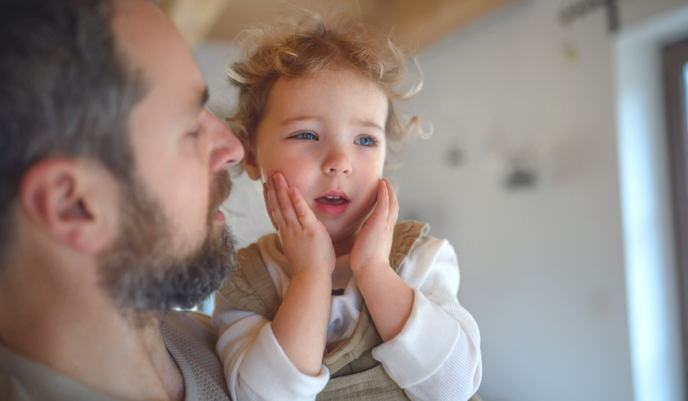
Give them lots of TLC
Being ill is no fun, especially if your child has particularly unpleasant symptoms like vomiting and diarrhoea, so offer as much comfort as they need to help them feel more calm and secure.
When is my child ready to go back to school?
If your child has a fever, don’t send them back to school until their temperature has gone back to normal, as they could still be infectious. For kids who have had sickness and diarrhoea, you’ll need to wait two days after their symptoms have gone to take them back to school.
No-one knows your child better than you do, so if they still don’t seem like their regular selves and tell you they don’t feel up to going to school, trust your parenting instinct. If you have any concerns at all, don’t hesitate to talk to a pharmacist or your child’s GP.
Tixylix is specially formulated to help soothe children’s dry, sore coughs, so take a look at the full Tixylix range.


